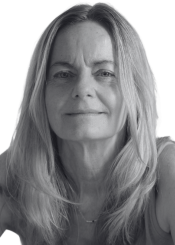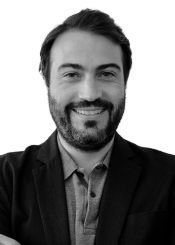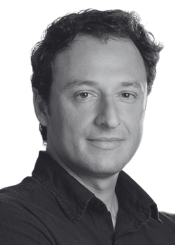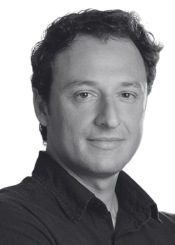Learn more about our Neuroscience Scientific Advisory Board Members

Anne Bang, PhD
Director
Anne Bang, PhD is the Director of Cell Biology at the Prebys Center, a state-of-the-art drug discovery center at Sanford Burnham Prebys Medical Discovery Institute (SBP), where she leads efforts to develop human pluripotent stem cell (hPSC)-based disease models, with an emphasis on neurological disease. The advent of hPSC technology has presented a remarkable opportunity to develop highly relevant models that are especially powerful when combined with ‘phenotypic screening’ for compounds or other perturbagens that modulate disease relevant phenotypes. To advance hPSC-based phenotypic screening for neurological disease her group has developed assays in higher throughput formats that read out cellular marker expression, morphology, and function. These include a high content image-based screen for chemical modulators of neurite outgrowth (Sherman and Bang, 2018), and a screen for modulators of tau phosphorylation on Alzheimer’s disease patient hPSC-derived neurons (van der Kant et al., 2019). In addition, using hPSC-derived neuronal networks on multi-electrode arrays (MEAs), Dr. Bang’s group has collaborated on development of network analysis methods (Puppo et al., 2021), and performed screens of over 270 compounds to describe a compendium of associated data signatures, especially for seizurogenic phenotypes. Finally, they have also developed assays on MEAs to model synaptic plasticity, as its impairment is a prominent feature of many pre-clinical models of neurological disorders. These include an assay to model long‐term potentiation (LTP) (Pré et al., 2022 and 2023), the biological substrate for learning and memory. Prior to joining SBP she served as Director of Stem Cell Research at ViaCyte Inc, where she developed hPSC-derived pancreatic cells as a diabetes cell therapy. Dr. Bang received a BS from Stanford University, a PhD from UCSD, and was a post-doctoral fellow in the Molecular Neurobiology Department at the Salk Institute.

Evangelos Kiskinis, PhD
Associate Professor
Evangelos Kiskinis, PhD is a tenured Associate Professor of Neurology and Neuroscience at Northwestern University Feinberg School of Medicine in Chicago and a New York Stem Cell Foundation Robertson Investigator. Dr. Kiskinis earned a PhD from Imperial College London and carried out postdoctoral training at Harvard University where he pioneered some of the first models of amyotrophic lateral sclerosis (ALS) using personalized stem cell-based approaches. His laboratory utilizes patient-specific induced pluripotent stem cells (iPSCs) and reprogramming approaches to develop models of neurological diseases such ALS and pediatric forms of severe neurodevelopmental epilepsy syndromes. The overarching goal of his research is to provide novel insights into neuronal development and identify points of targeted and effective therapeutic intervention for epilepsy and ALS. Dr. Kiskinis also serves as the Scientific Director of the Stem Cell Core Facility at Northwestern University and the Scientific Director of the LiveLikeLou ALS Foundation. Dr. Kiskinis currently serves as an advisor to several biotech companies and non-profit disease foundations including ResQ Bio, Synapticure, NuCyRNA Therapeutics, Packard ALS Center, LiveLikeLou ALS Foundation, ALS Find A Cure, and NeuronGrow.

Helen Miranda, PhD
Assistant Professor
Helen Miranda, PhD graduated with a BS in Biomedicine and an MS in Immunopathology from the State University of Londrina In Brazil. She then went to earn her PhD in Cell and Molecular Biology in the University of Sao Paulo, also in Brazil, under the mentorship of Dr. Lewis Joel Greene. In her graduate work, Helen performed proteomics comparisons of adult stem cells from two different sources (bone marrow and umbilical cord vein). As a graduate student, Helen was one of only 10 Brazilians selected by the renowned stem cell biology experts in the UK for the "Embryonic Stem (ES) Cells as a Model System for Embryonic Development" course. During this experience, she became fascinated by the use of induced pluripotent stem cells (iPSCs) for modeling human diseases. For that reason, Helen chose to come to the USA as a joint postdoctoral fellow in the La Spada lab and in the Muotri lab at the University of California San Diego (UCSD). During her postdoctoral training, Helen developed stem cell models for two different motor neuron disorders, spinal bulbar muscular atrophy and amyotrophic lateral sclerosis. She joined the Department of Genetics and Genomes Sciences at Case Western Reserve University as an Assistant Professor in May 2018 to continue her studies on the pathophysiology of motor neuron diseases.

Alysson Muotri, PhD
Professor
Alysson Muotri, PhD earned a BSc in Biological Sciences from the State University of Campinas in 1995 and a PhD in Genetics in 2001 from the University of Sao Paulo in Brazil. He moved to the Salk Institute as Pew Latin America Fellow in 2002 for a postdoctoral training in the fields of neuroscience and stem cell biology. He has been a Professor at the School of Medicine, University of California in San Diego since late 2008. His research focuses on modeling neurological diseases, such as autism spectrum disorders, using human induced pluripotent stem cells and brain organoids. He has received several awards, including the prestigious NIH Director’s New Innovator Award, NARSAD, Emerald Foundation Young Investigator Award, Surugadai Award from Tokyo University, Rock Star of Innovation from CONNECT, NIH EUREKA Award, among others.

